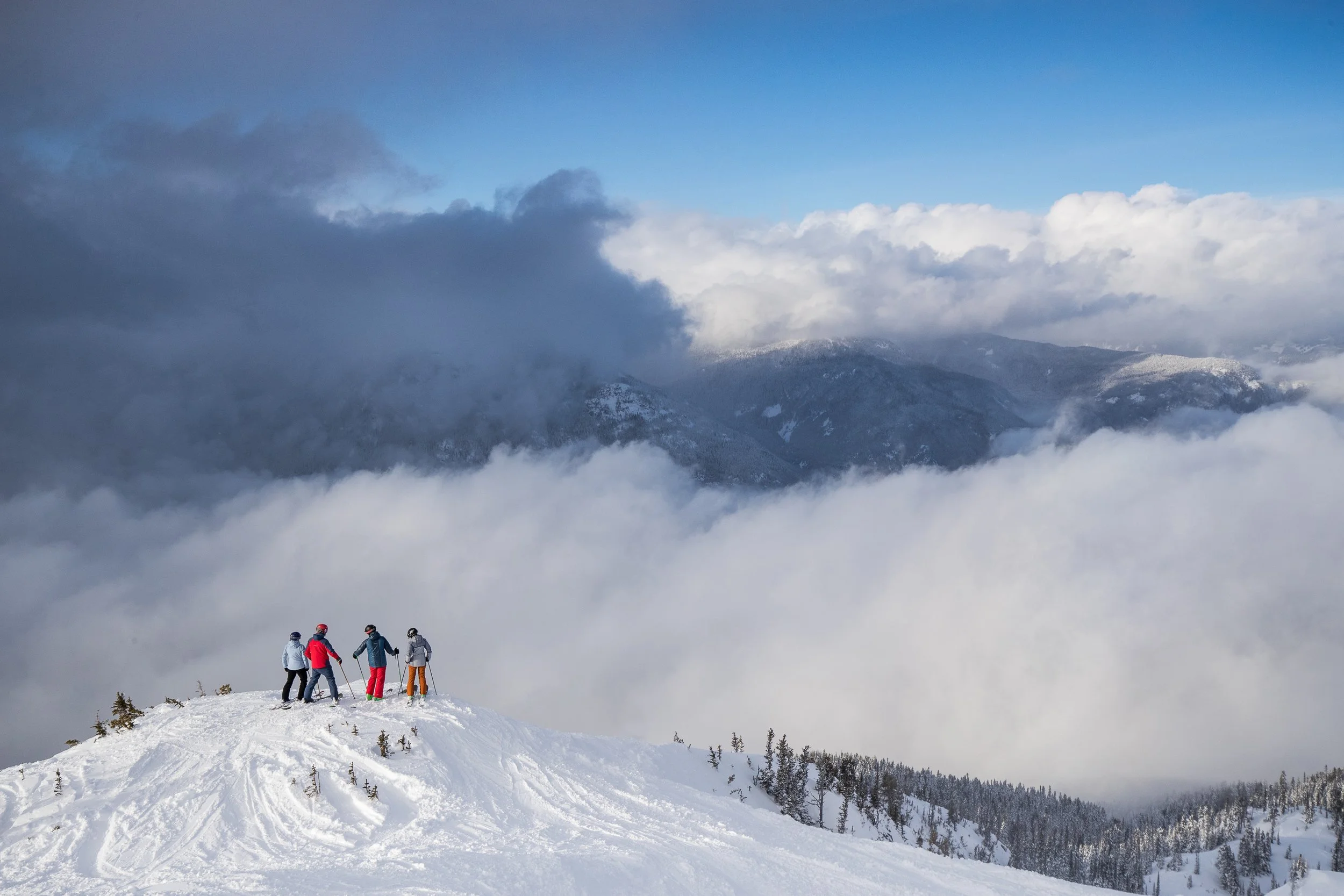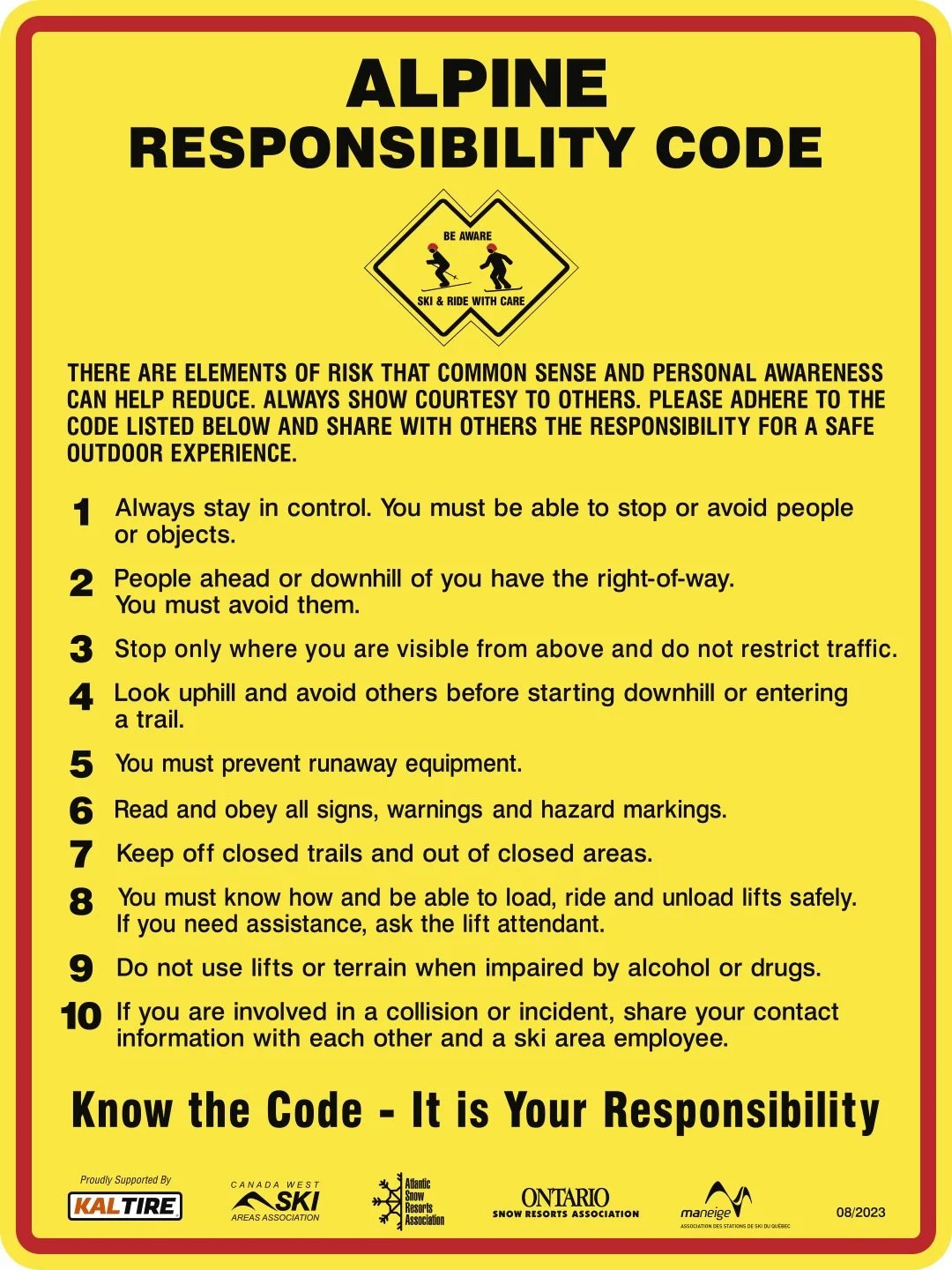
Inbounds Equipment and Preparation
Find out more about the equipment and steps to take prior to your backcountry adventure with Extremely Canadian.
Step 1: Questionnaire
So, you’re booked for a inbounds adventure with Extremely Canadian? It’s time to get prepared!
If not completed, please fill out the booking questionnaire to help us get as much information about you and/or your group. In your confirmation email, click the:
“Manage this Booking” —> “See Questionnaire” —> “Add Guest”
From here, you can include information about your goals and objectives for the day, experience levels, and guest details that will help us find the best coach for your private and prepare for clinics/camps.
Step 2: Waivers
Everyone is required to sign a waiver when skiing or riding with Extremely Canadian. A reminder that these are a legal document and a release of liability. Please ensure that you have read and understood it before signing. You will be required to sign the waivers prior to your adventure. Below are the links to waivers that need to be filled out based on your adventure:
Inbounds Resort Waiver (Epic Pass Holders exempt):
All waivers are signable online through your confirmation.
Step 3: Equipment
Are you prepared? We want to ensure you have everything you need for your adventure with Extremely Canadian.
Appropriate skis or snowboard (usually recommend 100+ underfoot depending on the conditions)
Ski poles (with powder baskets for skiers)
Helmet
Goggles
Valid lift ticket (discounted tickets available)
Warm mid-layers
Helmet (recommended)
Sunscreen (optional)
See below for our staff’s favourite gear picks!
Step 5: Itineraries
Steep Skiing Clinics:Day 1
8:15AM Meet at the Carleton Lodge for check in
Have you signed your waiver?
Do you have your lift ticket or pass?
Are you interested in testing out our Rossignol Demo fleet?
Leave the Carleton Lodge 8:30AM and upload Whistler Mountain
9-10AM warmup on a groomer, progressing to our separator run (Ratfink) to split into similar groups based on goals, and ability levels
11:30AM Break for lunch in the Roundhouse
Finish the day between 2:30-3:30 depending on the time of year/daylight.
2-Day Steep Skiing Clinic:Day 2
8:20AM meet on the Carleton Patio
8:30AM leave the deck and upload Blackcomb Mountian
11:30 break for lunch at guides discretion
3-3:30PM head to Merlins for Aprés for Extremely Canadian swag and drinks
Private Steep Clinics: Private Steep Clinics are completely customizable from your meeting time, location, and goals/objectives for the day.
Default meeting time and location is 8:30AM at the Carleton Lodge
The coach will complete gear checks and upload the gondola
If you have a Whistler or Blackcomb preference, please let the coach know or utilize their expertise to find the best snow
Use the time in the gondola to discuss goals and objectives for the day
Between 11AM - 1:30PM stop for lunch depending on conditions and goals
2:30-3:30PM wrap up the day at the last alpine chair which depends on the time of year
Freeride Snowboard Camps: Day 1
8:15AM Meet at the Carleton Lodge for check in
Have you signed your waiver?
Do you have your lift ticket or pass?
Leave the Carleton Lodge 8:30AM and upload Whistler Mountain
9-10AM warmup on a groomer, progressing to our separator run to split into similar groups based on goals, and ability levels
11:30AM Break for lunch in the Roundhouse
Finish the day between 2:30-3:30 depending on the time of year/daylight.
Day 2
8:20AM meet on the Carleton Patio
8:30AM leave the deck and upload Blackcomb Mountian
11:30 break for lunch at guides discretion
3-3:30PM head to Merlins for Aprés for Extremely Canadian swag and drinks
Staff Recommendations
Alpine Responsibility Code
Always stay in control. You must be able to stop or avoid people or objects.
People ahead or downhill of you have the right-of-way. You must avoid them.
Stop only where you are visible from above and do not restrict traffic.
Look uphill and avoid others before starting downhill or entering a trail.
You must prevent runaway equipment.
Read and obey all signs, warnings, and hazard markings.
Keep off closed trails and out of closed areas.
You must know how and be able to load, ride, upload lifts safely. If you need assistance, ask the attendant.
Do not use lifts or terrain when impaired by alcohol or drugs.
If you are involved in a collision or incident, share your contact information with each other and a ski area employee.








